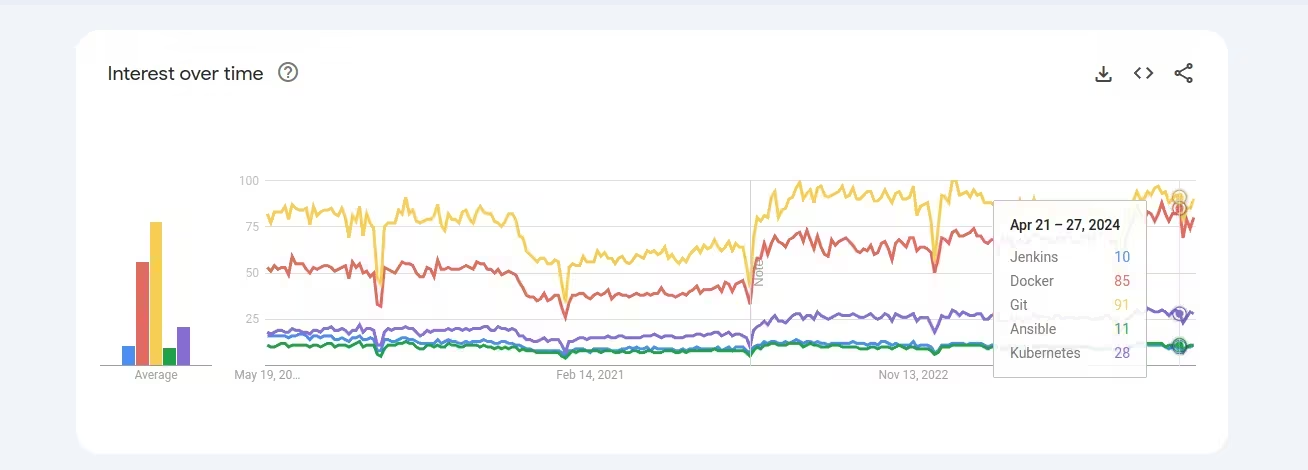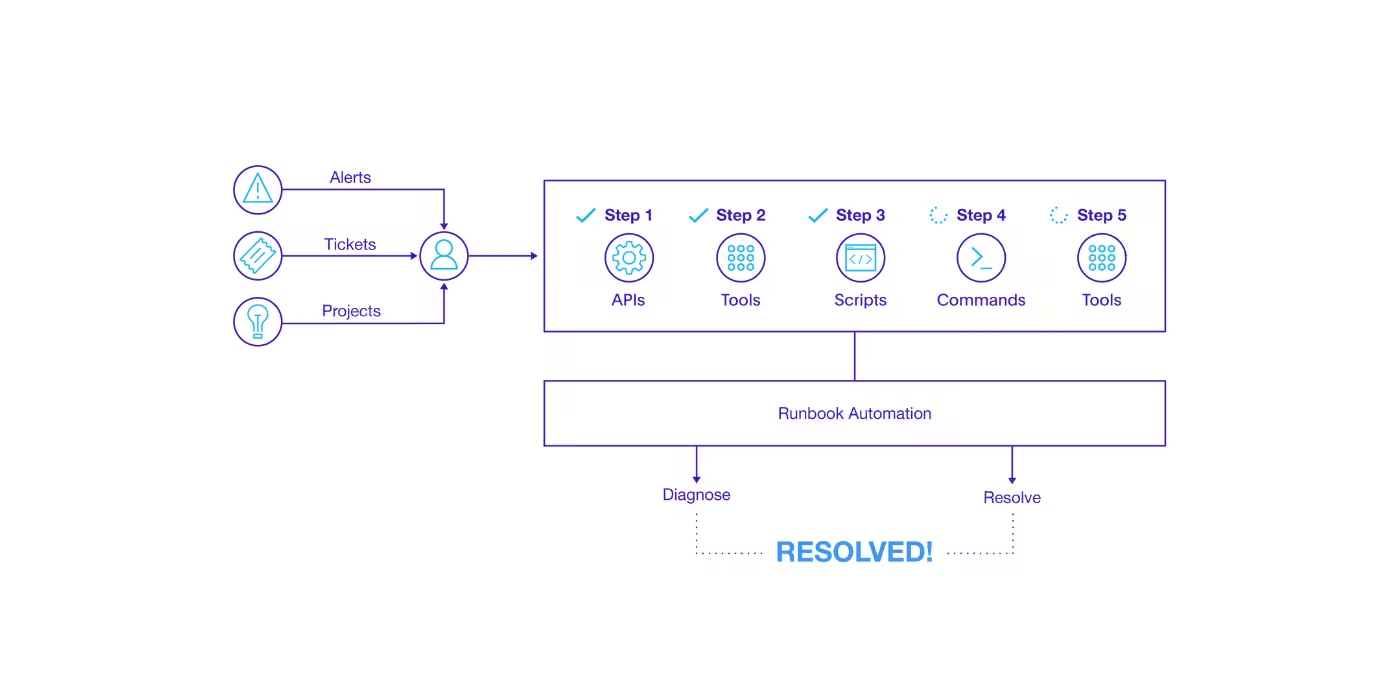
CALLGOOSE

CALLGOOSE
BLOG
05 September 2024 | Tony Philip
5 Minute Read
In today's fast-paced digital landscape, businesses of all sizes and sectors strive for efficiency and agility. DevOps tools are at the forefront of revolutionizing business processes by automating tasks, enhancing collaboration, and improving product delivery. This blog explores ten essential DevOps tools that can transform your business operations, boosting teamwork, pipeline performance, application functionality, and ultimately, customer satisfaction.
1. Jenkins – Automation Server
Jenkins is an open-source automation server that helps automate the parts of software development related to building, testing, and deploying, facilitating continuous integration and continuous delivery. It is highly customizable with a vast ecosystem of plugins, making it a flexible choice for managing complex workflows
2. Docker – Containerization Platform
Docker has become synonymous with containerization, allowing developers to package applications into containers—standardized executable components combining application source code with the operating system (OS) libraries and dependencies required to run that code in any environment. This simplifies and accelerates configurations and deployment.
3. Git – Version Control System
Git is a widely used free and open-source distributed version control system designed to handle everything from small to very large projects with speed and efficiency. Git is essential for managing code changes, allowing teams to collaborate more effectively throughout the development lifecycle.
4. Ansible – Configuration Management
Ansible is a powerful configuration management system that automates cloud provisioning, configuration management, application deployment, intra-service orchestration, and many other IT needs. It uses a straightforward YAML syntax, making it easy to define tasks, ensuring more people can participate in DevOps processes.
5. Kubernetes – Container Orchestration
Kubernetes is an open-source platform for managing containerized workloads and services that facilitates both declarative configuration and automation. It has a large, rapidly growing ecosystem, and its tools, support, and designed services make it easy to manage and scale containerized applications.
Popularity of DevOps Tools on Google Trends

6. Prometheus – Monitoring Tool
Prometheus is an open-source monitoring and alerting toolkit originally built at SoundCloud. It has a powerful query language and integrates well with various visual representation platforms like Grafana. It's particularly well-suited for monitoring dynamic container environments.
7. Terraform – Infrastructure as Code
Terraform by HashiCorp allows you to define and provision infrastructure through a high-level configuration language. You can manage service providers as well as custom in-house solutions. It provides an efficient way to manage infrastructure that is both reproducible and predictable.
8. Selenium – Automation Testing
Selenium is a portable framework for testing web applications. It provides a playback tool for authoring functional tests without the need to learn a test scripting language. It is essential in any DevOps toolkit for ensuring that new software versions do not break functionality or introduce new bugs.
9. Callgoose SQIBS– Incident Response
Callgoose SQIBS is a real-time Incident Management and Incident Response platform with an advanced On-Call schedule feature that keeps your organization more resilient, reliable, and always on. Callgoose SQIBS can seamlessly integrate with any software's or Tools including any AI to reduce alert noise , automate the workflows and improve the effectiveness of escalation policies for global teams. Several communication channels are supported, including Phone call, SMS, Mobile app push notifications, and many more. Several collaboration tools supported including Microsoft Teams & Slack.
Callgoose SQIBS has 'Automation Platform.' This feature offers Runbook Automation. Runbook automation plays a crucial role in enhancing incident response capabilities, enabling organizations to remediate incidents faster, minimize downtime, and ensure business continuity. By automating repetitive tasks, standardizing procedures, and enabling rapid execution of response actions, runbook automation empowers IT teams to respond swiftly and effectively to incidents, ultimately reducing the impact on business operations and enhancing overall resilience.
 Image Reference: rundeck
Image Reference: rundeck
10. Slack – Collaboration Tool
While primarily known as a communication tool, Slack has become integral to DevOps for its ability to integrate with other tools and services. It can be set up to receive automatic updates from other tools on this list, keeping teams informed of project status, alerts, and more, which enhances teamwork and speeds up response times.
11. Microsoft Teams– Collaboration Tool
While primarily known as a communication tool, Microsoft Teams has become integral to DevOps for its ability to integrate with other tools and services. It can be set up to receive automatic updates from other tools on this list, keeping teams informed of project status, alerts, and more, which enhances teamwork and speeds up response times.
12. Grafana – Analytics and Monitoring
Grafana is renowned for its operational dashboards, providing extensive visualization options that help monitor and analyze metrics.
13. Nagios – Monitoring Tool
Nagios offers comprehensive monitoring, providing alerts and insights into IT infrastructure to prevent problems before they affect critical processes.
Adopting these DevOps tools can significantly enhance the capability of your business to manage development and operational tasks efficiently. By integrating these tools into your business processes, you can achieve faster deployments, better quality products, and higher customer satisfaction. Each tool offers unique features that cater to different aspects of the DevOps pipeline, and together, they provide a comprehensive solution for businesses aiming to adopt modern IT practices and improve their delivery pipeline.
By leveraging different tools and using Callgoose SQIBS Incident Management and Callgoose SQIBS Automation Platform , you can set up robust event-driven and Incident auto-remediation automation workflows to enhance efficiency, reliability, and responsiveness in your IT operations.
Refer to Callgoose SQIBS Incident Management and Callgoose SQIBS Automation for more details


CALLGOOSE
SQIBS
Advanced Automation platform with effective On-Call schedule, real-time Incident Management and Incident Response capabilities that keep your organization more resilient, reliable, and always on
Callgoose SQIBS can Integrate with any applications or tools you use. It can be monitoring, ticketing, ITSM, log management, error tracking, ChatOps, collaboration tools or any applications
Callgoose providing the Plans with Unique features and advanced features for every business needs at the most affordable price.
Unique Features